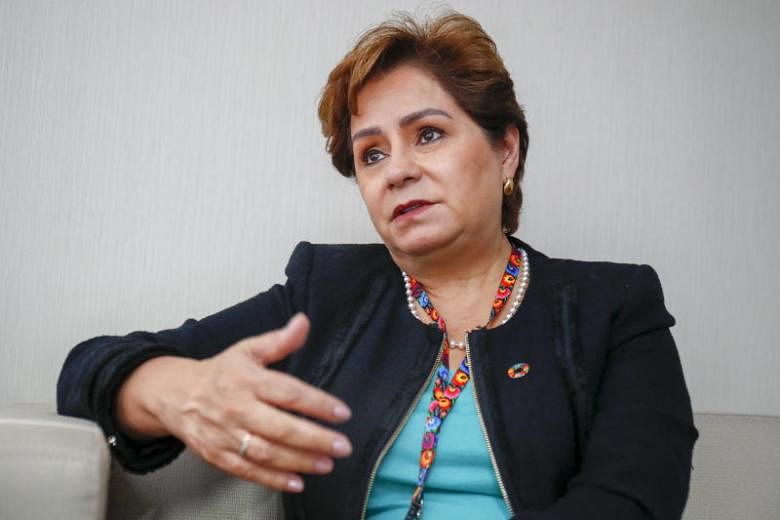BANGKOK - Negotiators made progress on agreeing on rules for the world's most ambitious climate agreement during talks that ended in Bangkok on Sunday (Sept 9), but left the most contentious issues for political leaders to resolve.
Delegates from nearly 200 nations are running out of time to finalise a rulebook that would allow the 2015 Paris Climate Agreement to go into action.
But after nearly three years of discussions, progress on the complex set of rules has been slow. This worries the United Nations, which says the pact is critical for vulnerable nations to cope with increasingly intense storms, floods, droughts and rising sea levels.
The rules are meant to be agreed on at a UN climate summit in the Polish city of Katowice in December.
"Progress has been made on most issues but no issues have been fully resolved yet," UN climate chief Patricia Espinosa said on Sunday.
There were hopes that the Bangkok meeting would end with a streamlined draft negotiating text on most issues. Instead, the compiled text runs to more than 300 pages.
"In Katowice, we have a lot, a lot of work to do," Mr Hugh Sealy of Barbados said in concluding comments to delegates in one meeting.
Irish chief delegate Colin Hehir, speaking on behalf of the European Union, told the same gathering: "We need to knock heads together."
Under the Paris Agreement, nearly 200 nations committed to keep the global average temperature increase to well under 2 deg C and aim for 1.5.
The pact also allows nations to pledge climate actions based on their national circumstances with the aim of regular global reviews of these pledges and then ramping them up over time.
It also set a goal of wealthier nations mobilising a collective US$100 billion (S$136 billion) from 2020 to 2025 to help poorer countries adapt to climate extremes and green their economies.
But talks to craft the Paris rulebook are complex and comprise multiple streams of negotiations, including finance, transparency of actions, reporting timelines of national climate actions, technology transfer and compliance. There are a total of 20 items on the agenda.
The talks in Bangkok were bogged down by accusations from poorer nations that developed countries have not made good on the finance pledges to date and are being evasive on what information they will provide on future finance flows.
Transparency was another thorny issue. For example, what should be the scope of national action plans and what should developed and developing countries report in their national climate plans during regular updates.
"These are very difficult and politically sensitive issues. For Katowice to be successful, work needs to speed up and political will needs to be intensified," Ms Espinosa told reporters.
Climate analysts and non-governmental groups were cautious on the talks outcome.
"The outcome of the Bangkok climate talks was uneven, and leaves much work to be done... to ensure a successful summit in Katowice," said Mr Alden Meyer, director of strategy and policy, The Union of Concerned Scientists.
Asked if there was going to be a deal in Katowice, Ms Espinosa told The Straits Times: "What I would say is that it is possible. I don't think it is impossible."
She pointed to the urgency of doing a deal and hoped world leaders would be spurred on by this week's Global Climate Action Summit in San Francisco, the UN Climate Week in New York at the end of the month, as well as a meeting of heads of climate delegations before Katowice.



